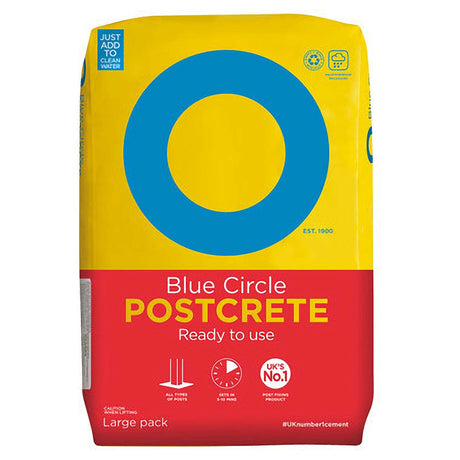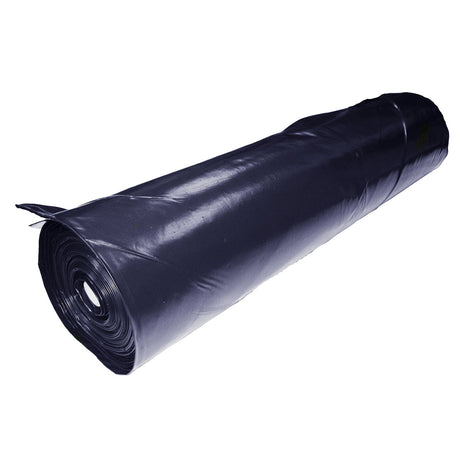When planning your construction or renovation project, understanding timber dimensions can feel like learning a new language. At DIY Building Supplies, we've guided countless customers through their timber choices, drawing from our extensive experience as Nottingham's leading online builders merchant. If you're wondering what 5×2 timber actually is and whether it's right for your build, this comprehensive guide will help you make confident, informed decisions for your project.
Understanding the Basics of 5×2 Timber Dimensions
The term "5×2" refers to timber dimensions measured in inches—specifically 5 inches wide by 2 inches thick. However, there's an important detail that often catches people out when they're new to timber purchasing: these measurements represent nominal sizes rather than finished dimensions.
Once timber undergoes kiln drying and regularisation (planing smooth on all four faces), the actual measurements become approximately 47mm × 125mm. This reduction occurs because kiln drying removes moisture content, causing natural shrinkage, whilst the regularisation process smooths away surface imperfections. The result is timber that offers superior strength, dimensional stability, and workability compared to rough-sawn alternatives.
At DIY Building Supplies, we exclusively supply kiln dried and regularised timber because we understand the importance of dimensional consistency and material quality in achieving professional project results. This processing may reduce dimensions slightly, but it dramatically enhances performance characteristics that matter most in construction applications.
Strength Grading: C16 and C24 Explained
When researching timber specifications, you'll encounter terms like C16 and C24 grade. These designations indicate structural strength characteristics, helping you match material capabilities with project requirements.
C16 Grade Timber
C16 represents standard structural grade softwood, perfectly adequate for numerous construction applications including wall studs, basic roofing frameworks, and internal structural elements where standard loading requirements apply. This grade offers reliable performance at an economical price point, making it an excellent choice for budget-conscious projects without compromising safety or structural integrity.
C24 Grade Timber
C24 grade represents premium structural timber with enhanced strength characteristics. This superior grade can only be achieved by timber grown in regions with slower growth rates, where climatic conditions produce tighter growth rings and denser wood structure. The result is timber capable of supporting higher loads and spanning greater distances than C16 equivalents.
At DIY Building Supplies, our structural timber typically comes in C24 grade because of its exceptional performance characteristics. The enhanced strength provides additional safety margins in critical applications such as floor joists or roof framing, where structural failure could have serious consequences. This quality commitment reflects our dedication to supplying materials that ensure your project's long-term success.
Primary Applications for Structural Timber
Understanding where this versatile dimension excels helps ensure you're specifying appropriate materials for your specific project requirements.
Stud Wall Construction and Internal Partitions
The most widespread use for this timber dimension is internal stud wall framing. The 125mm finished width perfectly accommodates standard 100mm insulation batts whilst leaving adequate space for electrical cables and plumbing installations. This makes it ideal for creating energy-efficient partitions that comply with current Building Regulations without unnecessarily reducing usable floor area.
We regularly advise customers at DIY Building Supplies who are planning room divisions, loft conversions, or home extensions. This timber dimension strikes an optimal balance between structural capability and practical space efficiency, making it the go-to choice for professional tradespeople and DIY enthusiasts alike.
Floor and Ceiling Joist Applications
C24 grade timber in this dimension performs excellently as ceiling joists in typical domestic applications. When properly spaced according to Building Regulations, it creates stable platforms for plasterboard ceilings whilst supporting standard loft storage loads. Additional applications include:
-
Floor joists in renovation projects and loft conversions
-
Sistering or reinforcing existing joist systems
-
Purlin construction providing horizontal rafter support
-
Hip rafters and valley boards in roof structures
The combination of adequate structural strength and manageable weight makes this dimension particularly popular with both professional contractors and DIY builders working at height or in confined spaces.
Roofing Framework Components
In roofing construction, this timber dimension finds extensive use across various structural elements. Beyond purlin construction and rafter applications in smaller buildings, it serves excellently for specialised roofing components where specific strength characteristics are required. The dimensions provide sufficient structural capacity whilst remaining practical to handle during installation, an important consideration when working at height where material handling safety is paramount.
External Structures and Garden Projects
When appropriately treated, this timber dimension extends beautifully into outdoor applications. The dimensions prove ideal for pergola construction, garden office frameworks, shed building, and decking substructures. It provides sufficient strength for these applications without appearing overly bulky, perfect for projects where aesthetics matter as much as structural performance.
For external work, we always recommend pressure-treated timber at DIY Building Supplies. Our experienced team can advise on appropriate treatment levels for your specific project, ensuring years of reliable service despite exposure to moisture, temperature fluctuations, and biological threats from fungi and insects.
Treated Versus Untreated Timber: Making the Right Choice
This decision significantly impacts your timber's performance and longevity, making it worth careful consideration during project planning.
When Untreated Timber Suits Your Needs
Untreated timber works well for internal applications in well-ventilated buildings with effective damp-proofing systems. It offers economical pricing and accepts paint finishes or stains readily. For projects like internal stud walls or ceiling frameworks in dry conditions, untreated timber often provides the most cost-effective solution.
However, even for internal applications, there's merit in considering treated timber. Modern buildings increasingly feature airtight construction, and even minor leaks or condensation issues can create conditions where timber decay becomes a concern over time.
The Advantages of Pressure Treatment
Pressure treatment involves forcing preservative chemicals deep into the timber's cellular structure under high pressure. This process provides comprehensive protection against decay, insect attack, and fungal growth throughout the timber's entire cross-section, not merely surface layers. The most commonly used treatment in the UK construction industry is Tanalith E, a water-based solution containing copper compounds and triazole fungicides.
At DIY Building Supplies, we often suggest treated timber even for internal frameworks, as it provides valuable insurance against future moisture-related problems for a modest additional cost. For any application where moisture exposure remains possible—including scenarios many people don't initially consider—treated timber offers significant long-term advantages.
If you've ordered treated timber, remember to allow adequate drying time before applying finishes. This typically requires several weeks in good weather conditions, particularly if you're planning to paint or stain visible surfaces.
Practical Considerations for Working with Structural Timber
Understanding technical specifications matters, but practical knowledge about handling and installation proves equally valuable during project execution.
Storage and Handling Best Practices
Proper storage before installation significantly impacts project success. Even kiln dried timber will absorb moisture if stored inappropriately, potentially leading to warping, twisting, or dimensional changes that complicate installation and compromise final results.
We recommend storing timber flat on level supports, protected from ground moisture and weather exposure. If working with treated timber, ensure adequate air circulation to facilitate drying whilst preventing direct sun exposure that might cause surface checking or warping.
The dimensions make this timber manageable for one person to handle over short distances, though we always recommend using appropriate lifting techniques and seeking assistance when working at height or moving multiple lengths simultaneously.
Installation Techniques and Fixing Methods
This timber machines beautifully with standard carpentry tools. The regularised surfaces provide clear reference points for accurate cutting, whether you're using hand saws, circular saws, or mitre saws. The timber's density offers excellent screw-holding capacity, though pre-drilling near board ends prevents splitting that could compromise connection strength.
For structural applications, always follow Building Regulations requirements for fastener specifications. Our technical team at DIY Building Supplies can provide guidance on fixing requirements specific to your project, ensuring connections that deliver reliable long-term performance whilst meeting regulatory compliance standards.
Why Choose DIY Building Supplies for Your Timber Needs
We're passionate about providing quality materials backed by genuine expertise that helps ensure project success. Our structural timber comes from reputable UK manufacturers including Timbmet, BSW Timber, and Arnold Laver, ensuring consistent quality and reliable availability throughout the year.
When you order from DIY Building Supplies, you're accessing more than just materials—you're gaining comprehensive support including competitive pricing without quality compromise, expert advice from our team with practical building experience, flexible delivery options across mainland UK, and transparent product information through our straightforward online ordering system.
Many of our customers appreciate that we arrange delivery through local timber merchants, combining our competitive online pricing with the reliability of established local suppliers. This approach reflects our commitment to excellent service whilst supporting local business relationships that benefit everyone.
Making Your Timber Selection Decision
Understanding timber dimensions and grade specifications represents a crucial step in any construction project. This versatile timber dimension offers an excellent balance of structural capability, practical versatility, and economic value across countless building applications. Whether you're framing internal walls, constructing garden features, or tackling major renovations, understanding material properties ensures you're making informed decisions that contribute to successful outcomes.
At DIY Building Supplies, we're here to support every stage of your project journey. Our commitment to quality building supplies at competitive prices, backed by expert advice and excellent customer service, reflects our belief that everyone deserves access to the materials and knowledge needed to complete their projects to professional standards.
Ready to discuss your timber requirements with our knowledgeable team? Contact DIY Building Supplies today and discover why trade professionals and DIY enthusiasts across the mainland UK choose us for their building material needs. We're not just suppliers—we're your partners in creating successful building projects that stand the test of time.













